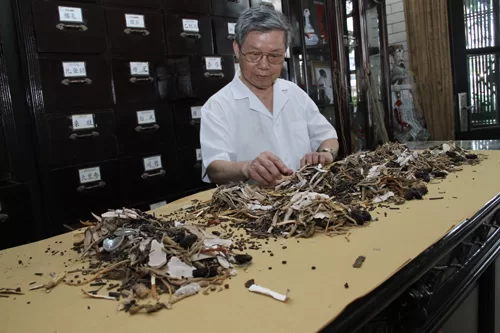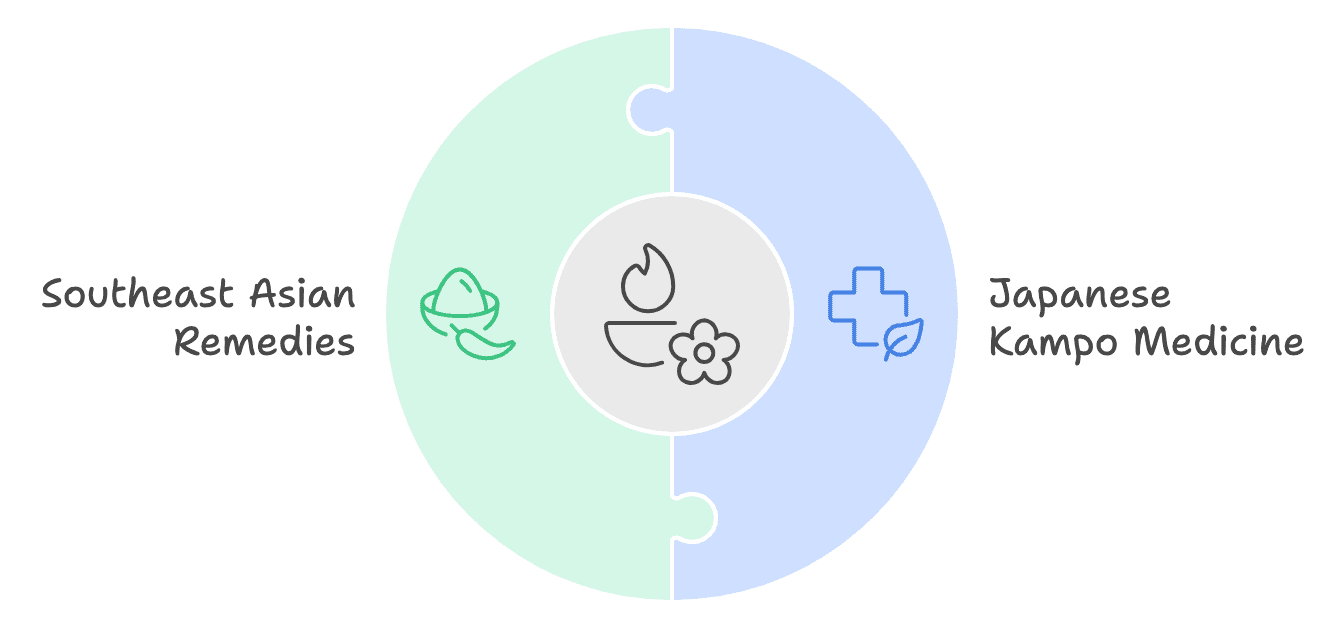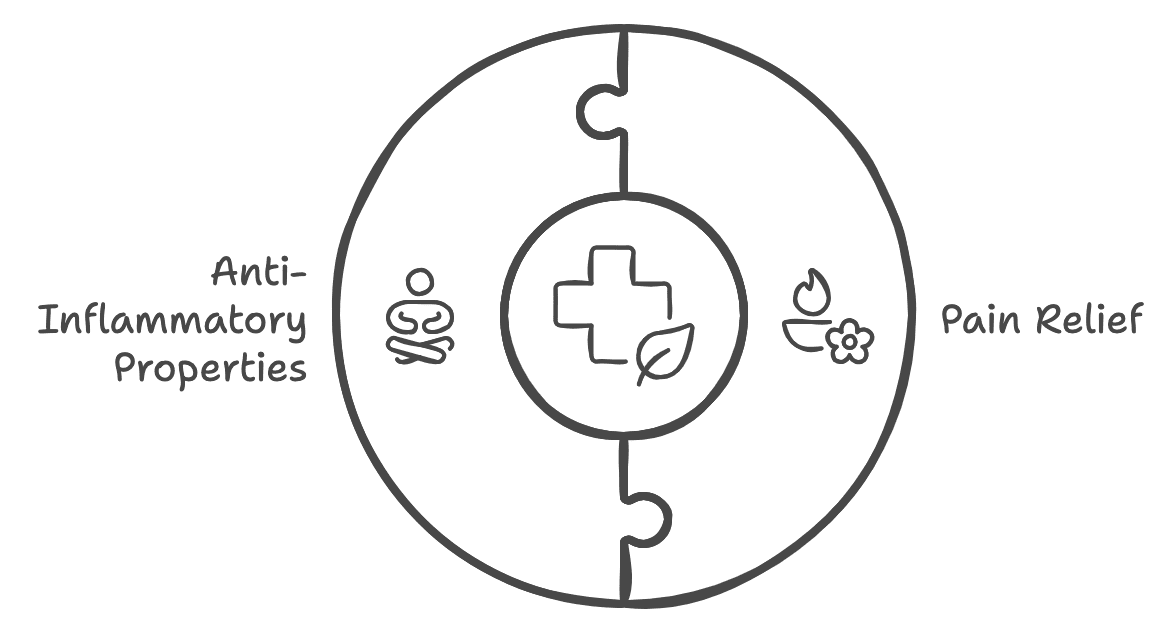
Introduction
Agarwood, known for its rich aroma and therapeutic properties, has been a cornerstone in various traditional medicinal practices for centuries. This rare and valuable resinous wood, derived from the Aquilaria tree, holds a prestigious place in different cultures due to its multifaceted uses. The purpose of this article is to delve into the traditional medicine uses of agarwood, highlighting the health benefits of agarwood and its significant role in traditional medicine systems around the world.
Table of Contents
Toggle
Understanding Agarwood
What is Agarwood?
Agarwood is formed when the Aquilaria tree becomes infected with a specific type of mold called Phialophora parasitica. In response to this fungal attack, the tree produces a dark, aromatic resin known as agarwood resin or oud. This process transforms the otherwise pale, scentless wood into a valuable substance imbued with a unique fragrance and medicinal properties.

Formation Process
The development of agarwood is a rare and complex phenomenon. The fungal infection triggers the tree’s defense mechanism, leading to the production of the resin that saturates the heartwood. Over time, this resinous accumulation results in the formation of agarwood, which is then harvested for various uses.
Historical Significance
Historically, agarwood’s medicinal uses have been documented in ancient texts across different civilizations. From early Ayurvedic scriptures in India to Chinese medicinal records, agarwood has been esteemed for its healing properties and was often reserved for royalty and the elite due to its scarcity and value. Additionally, agarwood in religion and rituals underscores its revered status in various cultural and spiritual practices.
Agarwood in Traditional Medicine
Agarwood in Ayurvedic Medicine
Dosha Balancing
In Ayurvedic medicine, agarwood is revered for its ability to balance the Vata and Kapha doshas, which are essential energies governing bodily functions. By harmonizing these doshas, agarwood promotes overall health and wellness.

Treatment Applications
Agarwood’s medicinal uses in Ayurveda include treating digestive disorders, such as indigestion and loss of appetite. It is also employed to alleviate respiratory conditions like asthma and bronchitis, thanks to its warming and expectorant properties.
Agarwood in Traditional Chinese Medicine
Qi Regulation
In Traditional Chinese Medicine (TCM), agarwood is utilized to promote the flow of Qi, the vital life force energy. It is believed that stagnation of Qi leads to illness, and agarwood helps in unblocking and regulating this energy throughout the body.
Therapeutic Uses
Practitioners of TCM use agarwood to alleviate pain and discomfort, particularly in the chest and abdominal regions. It is also prescribed for treating kidney problems and enhancing overall vitality.

Agarwood in Middle Eastern Medicine
Unani Medicine
In the Middle Eastern Unani medicine system, oud in traditional medicine is a common practice. Agarwood is incorporated into remedies due to its warming effect and its ability to balance bodily humors.
Health Benefits
Within Unani medicine, agarwood is valued as an aphrodisiac and is used to enhance mental clarity and relieve stress. Its calming scent and therapeutic properties make it a staple in treatments aimed at improving mood and cognitive function.
Agarwood in Other Traditional Medicines
Japanese Kampo Medicine
In Japanese Kampo medicine, agarwood is applied for its calming effects. It is used to treat emotional distress, anxiety, and to promote a state of relaxation.
Southeast Asian Remedies
In Southeast Asian traditional medicine, agarwood is used to treat rheumatism and body aches. Its anti-inflammatory and analgesic properties provide relief from muscle and joint pain.

Health Benefits of Agarwood
Digestive Health
Stimulating Appetite
One of the notable health benefits of agarwood is its ability to stimulate appetite. It is particularly beneficial for individuals suffering from anorexia or those recovering from illnesses that suppress hunger.
Relieving Gastrointestinal Issues
Agarwood aids in the treatment of indigestion, nausea, and stomach pains. Its carminative properties help in expelling gas, thereby relieving bloating and discomfort.

Respiratory Health
Asthma Relief
Among the agarwood medicinal uses, easing asthma symptoms is significant. Agarwood acts as a bronchodilator, helping to open airways and facilitate easier breathing.
Cough and Cold Remedy
The soothing effects of agarwood on the throat and respiratory tract make it an effective remedy for coughs and colds. It helps in reducing phlegm and relieving congestion.

Mental Health Benefits
Anxiety and Stress Reduction
The calming properties of agarwood have a profound impact on the nervous system. It reduces anxiety and stress levels, promoting a sense of tranquility.
Enhancing Sleep Quality
Agarwood is used in treating insomnia and sleep disturbances. Its sedative effects help in inducing sleep and improving sleep quality.

Anti-inflammatory and Analgesic Properties
Pain Relief
Another significant aspect of the health benefits of agarwood is its effectiveness in reducing muscle and joint pain. It is used to treat conditions like arthritis and rheumatism.
Reducing Inflammation
The anti-inflammatory properties of agarwood make it useful in treating inflammatory conditions, aiding in reducing swelling and discomfort.

Antimicrobial and Antioxidant Effects
Combating Infections
Agarwood’s medicinal uses extend to its role as an antimicrobial agent. It is effective against various bacterial and fungal infections, promoting healing and preventing the spread of pathogens.
Protecting Against Oxidative Stress
The antioxidant properties of agarwood safeguard body cells against oxidative stress, which can lead to chronic diseases and aging.

Oud in Traditional Medicine
Extraction and Use of Oud Oil
What is Oud Oil?
Oud oil is the essential oil extracted from agarwood. It is obtained through a meticulous distillation process, capturing the essence of agarwood’s fragrance and medicinal properties.
Therapeutic Applications
In aromatherapy, oud oil is used for mental and emotional well-being. Its rich aroma is believed to balance emotions, enhance mood, and promote relaxation.
Topical Uses
When applied topically, oud oil can treat skin ailments, reduce inflammation, and alleviate pain. It is also used in massage therapies to relieve muscle tension.

Cultural Significance
Middle Eastern Traditions
In Middle Eastern cultures, oud in traditional medicine is deeply ingrained. Agarwood and oud oil are used in daily life for their therapeutic properties and as a symbol of hospitality and luxury.
Perfumery and Spiritual Practices
Agarwood plays a significant role in perfumery, offering a base note that is rich and long-lasting. It is also used in spiritual rituals to enhance meditation and create an atmosphere conducive to introspection.

Modern Research and Applications
Scientific Studies on Agarwood
Clinical Trials
Recent clinical trials have begun to substantiate the traditional claims regarding the health benefits of agarwood. Studies have shown its efficacy in reducing inflammation, combating microbes, and providing neuroprotective effects.
Pharmacological Properties
Researchers are discovering new compounds within agarwood that have potential medicinal applications, including anti-cancer and anti-diabetic properties.
Integration into Contemporary Medicine
Herbal Supplements
Today, agarwood is available in various forms, such as capsules and tinctures, as herbal supplements. These products aim to make the traditional medicine uses of agarwood accessible to a broader audience.
Complementary Therapies
Agarwood is used alongside conventional treatments, offering a holistic approach to healing. Its incorporation into complementary therapies underscores its enduring relevance.
How to Use Agarwood Safely
Forms of Agarwood Available
Incense and Powders
Traditionally, agarwood is burned as incense or ground into powders for consumption. These methods are still popular in cultural and spiritual practices.

Essential Oils and Extracts
Modern applications include agarwood essential oils and extracts used in aromatherapy and skincare products.
Dosage and Precautions
Recommended Usage
While agarwood offers numerous health benefits, it is essential to use it responsibly. Recommended dosages vary depending on the form and intended use, so consulting a healthcare professional is advisable.
Potential Side Effects
Potential side effects may include allergic reactions or interactions with medications. Being aware of these risks ensures safe consumption of agarwood.
Purchasing and Quality Considerations
Authenticity
To experience the true health benefits of agarwood, it is crucial to ensure that the product is genuine. Due to its high value, counterfeit products are common.
Sustainable Sourcing
Buying from ethical suppliers supports sustainable practices that protect Aquilaria trees from overharvesting, ensuring that agarwood remains available for future generations.
Conclusion
Recap of Agarwood’s Medicinal Value
Agarwood is a remarkable natural remedy with a rich history in traditional medicine. The health benefits of agarwood are diverse, ranging from digestive and respiratory support to mental health improvements and antimicrobial effects. Moreover, the multifaceted significance of agarwood and its enduring legacy in traditional medicine highlight its profound impact across various cultures and practices.
Enduring Legacy in Traditional Medicine
The continued use of agarwood medicinal uses today highlights its effectiveness and the respect it commands across cultures. Its integration into modern therapies attests to its enduring legacy.
Encouragement for Informed Use
While embracing the benefits of agarwood, it is essential to use it responsibly. Consulting healthcare professionals and sourcing high-quality products ensures that one can safely enjoy its therapeutic properties.
References
- Historical Texts: Ancient Ayurvedic and Chinese medicinal texts documenting the traditional medicine uses of agarwood.
- Scientific Journals: Recent studies published on the efficacy of agarwood and oud in traditional medicine, available in journals like the Journal of Ethnopharmacology.
- Herbal Medicine Resources: Books and articles on herbal remedies that discuss the integration of agarwood into modern practices.
By understanding and appreciating the profound health benefits of agarwood, we can continue to value this precious resource and incorporate it wisely into our wellness routines.
Author
Pham Thi Mai Huong is the Sales Director of Oudgo, responsible for managing the sales team, developing relationships with customers, and establishing strategic partnerships. She holds a Bachelor’s degree in Business Administration from Ho Chi Minh City University of Economics and brings over twelve years of experience in sales and market development. Prior to joining Oudgo.Ms. Huong worked with companies specializing in the export and distribution of premium products, where she developed expertise in expanding market reach and driving sales growth. Her leadership and strategic approach have been key in enhancing Oudgo’s sales performance and strengthening its presence in the market see more
